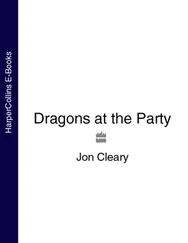1 ...7 8 9 11 12 13 ...21 The train came in half an hour later. Okada caught it, stood in a crowded compartment and wondered if he would have any difficulty with Natasha Cairns when he made contact with her this evening. He felt exactly as he had as a boy and a young man: in his father’s homeland but not at all at home.
3
‘Every nation must be taught its proper place,’ Chojiro Okada had said. ‘If every country in the world were allowed its own sovereignty, there would be nothing but anarchy. Japan would not be at war with America if the Americans had only understood that.’
Tom had always been respectful in his arguments with his father; it was the only way the arguments could be continued. ‘Dad, there’s no natural hierarchy for nations—’
Chojiro Okada waved a hand of dismissal. He had a working man’s hands, roughened and blunted by his early years in America, but they were capable of graceful movement. ‘Of course there is. Why do you think the British and the French and the Dutch founded their empires?’
‘I always thought it was for trade—’
‘That was only part of it. They all three consider themselves superior to the people they colonized. They have no right to be in Asia. We Japanese are the superior ones in Asia, we are the ones who should be teaching the others their proper place.’
Chojiro Okada had been preaching the same doctrine to his son ever since the invasion of Manchuria in September 1931, when Tom had been fifteen years old. The boy, intent on his own small battles in high school, had listened politely but without interest. Chojiro had tried to tell him that his own private battles had been far worse. But one could never tell the young about the past, there was never any comparison in their eyes with the present, neither for good nor for ill.
‘There’s none so blind as the young,’ he said.
‘What?’ Tsuchi, his wife, was busy cooking supper. She had become accustomed to his talking to himself, if only because she had forced him into the habit.
‘Nothing.’ Only a little less blind was a wife.
He walked out of the hut, pulling his hat down over his brow against the pale blue glare of the Wyoming sky. The mountain peak had the sharp outline of winter; much sharper than the peaks had been back home. When they had brought him and his family here to Blood Mountain relocation camp two years ago he had felt a bitter, masochistic joy at how the Americans had spun the wheel full circle to grind him under again. He had got out of the bus that had brought them from Green River, where they had been unloaded from the train that had brought them from California, and he had looked around at the wide landscape, thinking how little it seemed to have changed since he had first seen it forty-one years ago.
‘Welcome back,’ he had said sardonically, but he had said it to himself, a private joke that he knew was pointless to share with his family. None of them, not even Tsuchi, knew what he had endured here.
He had come to the United States from Nagasaki in 1901, when he was twenty-one years old. He was middle class, descendant of a long line of weapon makers who were more than artisans; the line could be traced back to one of the master swordsmiths of Tanega who were the first Japanese introduced to guns by Portuguese traders in the middle of the sixteenth century. Okada guns and swords were bought and prized by army and naval officers; Chojiro had completed his apprenticeship when he got into trouble. He had never told his own family why he had left Japan: he had climbed into bed with his eldest brother’s wife, something his brother’s wife had liked but his brother hadn’t. He had landed in San Francisco and, through one of the boarding-houses that also acted as employment agents, he had got one of the few jobs then available to Orientals: working on the railroad. He had worked for a year in Wyoming, never becoming accustomed to the vastness of the landscape; it had seemed to reduce himself in his own estimation, making him ridiculously small in any scheme of things. He had received poor pay, poor accommodation and poor food, had been abused day after day by the Irish foremen who, with the advent of the Chinese and Japanese labourers, had now moved up the social scale. It was the first time the Irish long upper lip had come close to being a patrician feature.
The day his contract ended he had left the railroad and gone down to Idaho to work on sugar-beet farms, where the pay was no better but where the farmers, Mormons who themselves knew a little about discrimination, treated him better than had the Irish foremen. Four years later, having saved a little money won at gambling, he had moved to Los Angeles. Since the Mafia and Bugsy Siegel had not yet arrived in California, there was little call for a gunsmith; men were shot dead occasionally, but a Colt .45 was usually sufficient for the deed and it could be bought on mail order. He drifted to Gardena, where there was a small Japanese community, and there he started a nursery, as much by chance as by choice. It had been a hard struggle for the first five years; then he had begun to prosper. He had dreamed of going home to Japan, but he was still in disgrace with the family and he would not return till his parents wrote him to come back. His brother had divorced his errant wife and taken another, but that hadn’t altered his parents’ opinion of Chojiro.
In 1914 he had married Tsuchi Yataba, a ‘picture bride’ he had chosen from a selection sent him by an agent. There had never been any love in the marriage, but there had been respect on both sides: it was enough for each of them. There had been three children: Tamezo, born in 1916 after Tsuchi had had a miscarriage with her first pregnancy; then the two girls, Etsu and Masako, born two and three years later respectively. Their father never forgave them for calling themselves, Tom, Ettie and Madge when they started going to school and, despite their protests, he never called them anything but their Japanese names.
Ettie was now walking up the camp’s main road towards him, picking her way carefully through the dust. The camp these days was half-empty and the camp authorities put in no more than was absolutely necessary to maintain the roads and huts. Earth was piled up against the walls of the huts as insulation against the bitter winds that blew down from the mountains in winter; they reminded him of the sod houses, built by the pioneer settlers, that he and some of the other railroad workers had lived in all those years ago. He regretted, more than he could tell them, that his wife and daughters had to live in such conditions. But it was not his fault: everything was to be blamed on the Americans.
‘Another letter from Tom.’ Ettie held up letter, as she always did, though she knew her father, as he always did, would not ask what news it contained. But this time she did tell him: ‘He is not in the fighting any more, he’s safe somewhere. He said he can’t say where, just that it was some sort of training school.’
Chojiro Okada said nothing, looking away from her.
‘Dad—’ Ettie was a pretty girl with a soft, sad voice that suggested she was ready to weep for the world; instead, she was an incurable optimist, an American trait her father found insufferable. ‘I’m going to Chicago.’
‘What for?’
‘To work as a nurse. I’m tired of living here at Blood Mountain.’
Blood Mountain had been turned into a camp for incorrigibles, the ‘disloyals’ as they were called, those who had refused to take an oath of allegiance to the United States. Some of the women had been passed as trustworthy and were allowed to take jobs in nearby towns; Ettie worked for a dentist in Green River and her sister Madge was a cook on a neighbouring ranch. They were looked upon as traitors by some of the more aggressive men in the camp, but they were never subjected to any abuse because of the respect in which Chojiro, a true patriot, was held.
Читать дальше












